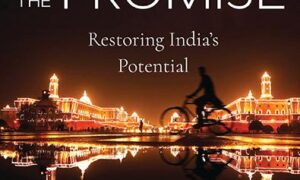
‘…an excellent guide on the role of the Upanishads in Indian philosophy.’
Dr Arvind Sharma, Professor of Religion, McGill University
The British mathematician and philosopher Alfred North Whitehead had famously written, ‘The safest general characterization of the European philosophical tradition is that it consists of a series of footnotes to Plato.’
In the Upanishads: an introduction, Parsa Venkateshwar Rao Jr argues with greater justification that the whole of Indian philosophy is a footnote to the Upanishads.
‘He who has searched out the Self and understands it, obtains all worlds and all desires.’
CHHANDOGYA UPANISHAD
What Western scholars perceive to be the religious stigma of the Upanishads is the very reason these texts remain intellectually alive three thousand years after they were expounded. The Upanishads did not remain static and served as the crucible for philosophical developments in the centuries that followed. This includes the Jain and Buddhist schools of thought that emerged in the post-Vedic period.
WHERE DO WE COME FROM? WHAT ARE WE? WHERE DO WE GO? These are some of the age-old questions that also plagued the Upanishadic philosophers of ancient India. Through debate and discussion, these men and women arrived at certain universal truths that found resonance in subsequent traditions of the East.
Drawing upon the scholarship of noted Indologists such as Max Müller, this handbook demystifies the core ideas that guided the ancient Indians and introduces readers to the tenets of the Upanishads as they unfolded in dialogue and stories.
ABOUT THE AUTHOR
Parsa Venkateshwar Rao Jr is a Delhi-based journalist. He has authored several books on current affairs and politics in the past. This is his first book on his abiding passion – Indian philosophy.
NON FICTION | INR 399
[the_ad id=’22722′]
















